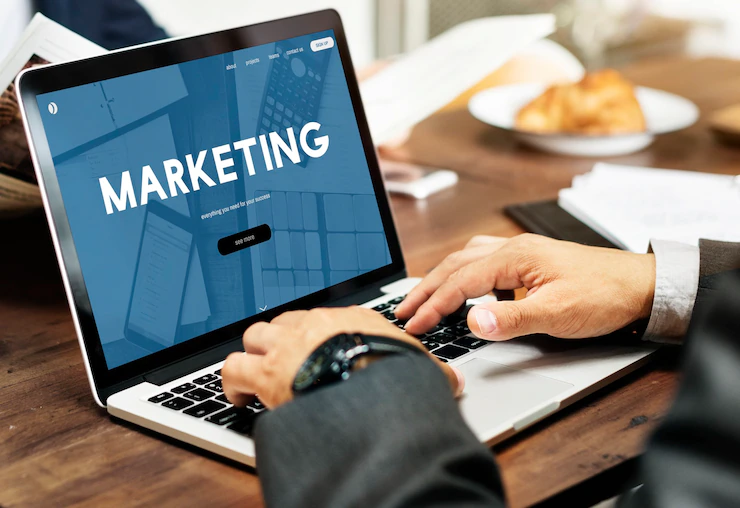If you’re in higher management, you strive to make sure your marketing team is doing its best to market your brand and bring in leads to the sales team. Lest outsourcing becomes ponders publicity, keeping your organizational processes internally is crucial to you because you want to keep control over operations, and you want to keep costs at a decent minimum.
Now you’ve realized that internalizing all of your online marketing efforts might not be working out as well as you’d imagined.
Businesses that outsource marketing have specialized marketing services on their side, collaborating with them with every campaign and a new initiative to make sure it’s successful.
Online marketing services are often more efficient than an in-house marketing team and, more often than not, more affordable. Systems are even created to make sure your brand still has control over activities and the reputation of the company.
Outsourcing your marketing efforts can be a great option if you understand the importance of a powerful marketing campaign but don’t have the resources to do it by yourself.
Who Can Benefit from Outsourcing of Brand Marketing Campaign?
Many companies and brands decide to outsource their marketing activities to help them create brand awareness and generate leads. But certain businesses tend to use outsourced resources to implement their marketing agendas. Here are some of them.
1. Early-Stage Businesses
Upscaling a new business is a challenging and stressful job. You have many decisions to make while developing new services and products.
At the early stage of the business, business owners often concentrate their efforts on creating the product and do not have the financial power or the time to hire full-time marketing people.
As the company prepares to launch their service, they need to develop a brand image. An outsourced marketing agency often handles the processes that design the style guides and website and creates the company logo.
2. Growing Companies
When companies launch their service or product without problems, they often enter a high-growth phase to quickly bring supplementary marketing resources.
Outsourced marketing services provide the necessary talent and resources to increase revenue growth without adding a lot of overhead.
More often than not, businesses in growth stages cannot afford the time it takes to train and hire new staff members.
Outsourced marketing firms or Virtual PA services provide expertise and flexibility during these growth stages. Often, venture capital firms invest in companies at this stage and use the influx of cash to accelerate growth through social media platforms, content marketing, SEO, and digital advertising activities.
3. Companies with Large Marketing Teams
Global organizations hire hundreds, if not thousands, of marketing professionals to back their brand and sales initiatives.
These enterprises will often use outsourced firms and professionals to provide crucial services. For instance, a company will hire outsourced professionals to promote an event, save money or launch a new project.
Outsourced resources are often more affordable than in-house professionals. The company may want to skyrocket a specific product line and outsource for a short-term initiative.
4. Niche Companies
Brands and companies that operate in specialty markets like engineering or biotechnology may find it challenging to hire in-house marketers with the experience and the know-how they need to create and launch content marketing campaigns.
Outsourced marketing services often specialize in a specific niche market. They bring not only valuable resources but also experience in these unique markets.
Virtual assistants, for example, combine technical expertise with marketing education or experience. These professionals work in leading organizations and have a greater understanding of the market than full-time professionals with little experience.
When To Do Outsourcing?
If you do not see the results you want from your in-house marketing team, then you should consider outsourcing.
Your in-house team is working relentlessly with the goals set before them, but the results continue to be short of optimal. Staying on top of performance and campaign optimization isn’t easy. Often in-house teams have no time to optimize these campaigns for better performance, so they end short of hitting their goals.
Evaluating the results of marketing efforts is critical to the success of a team not only in-house but for outsourced professionals as well. If it’s been a few months since your brand launched a great marketing campaign, it might be time to outsource marketing.
a. Your Marketing Team Is Burned Out
In marketing, there is graphic design, copywriting, SEO, website development, email marketing, lead generation, and so much more. How many professionals do you have in your team?
Do you have someone assigned to each task involved in marketing, or do you have one marketing guru filling many hats?
A copywriter can’t be a graphic designer and vice versa, but so many entrepreneurs expect so much from one marketing employee. One team member cannot meet the massive marketing demands in today’s market.
b. You’re Always Running Out Of Time
You’re planning a stellar email campaign this month, but your team ran out of time, so you reschedule it. You’re rushing to get the offer, the Facebook posts, and the blog posts out before Christmas.
If you feel like you’re always running but never get anywhere, then it might mean you don’t have the necessary systems or strategies in place to run efficiently.
c. You Lack Proper Strategy
Getting things done might feel rewarding, but those things are time idlers instead of business generators when they are not part of an overall strategy.
Posting on social or sharing a blog post is useless unless you have a purpose of reaching your goal. Sharing for the sake of staying active on social media platforms is not a real strategy.
You feel the pressure of staying active online, so you ask your marketing team to ensure the social accounts are active always, but you don’t give them a genuine reason.
As a business, you have income goals, but if you lack a proper strategy to meet those goals, then you might want to consider outsourcing digital marketing services.
Summary
That’s all about the logic behind considering outsourcing your brand’s marketing campaign. I hope the article was intriguing enough to make you understand why you should outsource the marketing campaign. The rationale is justified above along with specific situations to make your concept clear.
Wanna clear any doubts? Drop your queries in the comment area below.
Read Also:
- What You Need to Know When Outsourcing SEO
- How Legal Services Outsourcing Aids Law Firms and Legal Departments
- Balancing the Books with Outsourcing – Virtual Receptionists
- 9 Things Conservatives & Liberals Have in Common
- How To Reduce The Operating Cost of Your Business?



























